“But there’s another girl and another day / and your favourite food still tastes the same.” Dave Monks has a sincere appreciation for nostalgia; always looking back at past moments and memories that have defined him. This self-reflection, compounded by the past year and a half spent in isolation has led Dave to embrace the many facets of his personality that make him the person and songwriter he is today. I sat down with the Tokyo Police Club member to commemorate the 10th anniversary reissue and tour for the band’s 2010 LP, CHAMP while looking ahead to his brand new solo LP, I’VE ALWAYS WANTED TO BE ME, and upcoming Tokyo Police Club projects. We discuss Dave’s favorite food lyrics, his creative process, collaborations, and how he differentiates his sound as a solo artist and a band in 2021. Ever since the release of TPC’s 2006 quirky post-punk breakthrough EP, A LESSON IN CRIME, Monks has constantly been on the search for his own musical identity. 15 years later, he seems to have never been more comfortable in his own skin as a songwriter across the 14 tracks of his new, sonically adventurous solo LP.
Tell me a little bit about the title of your new album, I’VE ALWAYS WANTED TO BE ME, and the headspace you’re getting into writing these songs. Curious about where that title came from.
Dave Monks: I feel like when I was living in New York, I would ask myself and my friends sometimes, “am I being very me right now?” I feel like it’s easy to lose track sometimes, especially when you’re in a new place, or you’re not around your people, or you’re not doing your regular stuff. I feel like this year has been a little bit of that experience for people. You can lose track of who you are, and I feel like the last couple years doing Tokyo Police Club and my last album ON A WAVE, it’s been a process of solidly planting my feet back on the ground and discovering, “oh I am me,” which is great because I’ve always wanted to be me. I feel like I’m in my own skin again. Either people are going to hear that title and be, like, “I don’t know what he’s talking about” or “wow that hits me.” It’s something that came to me and it’s the only time I’ve had a record title that I didn’t throw out at some point over the course of making the thing, it just kept feeling good. So yeah, that’s what it’s called.
So there’s a song called “Change Your Mind” on the new record, I know there’s a lyric on it “there’s a place in town with the coconut cake.” And I also saw that you started a record label called Ghost Pepper Records, and I’m curious because food seems to be a prominent lyrical theme for you. I would love to dig into your thoughts on food lyrics.
DM: I feel like food is so visceral in songs, and it’s unexpected but is also pretty exciting. I feel like there’s a reason people sing about sex all the time: it’s because it’s bodily exciting. And I’ve been a pretty PG writer my whole career, but the food is a good outlet for that. Something about any time you can get food into a song, it seems good. “Coconut Cake” is just fun to sing, Julian Casablancas has a song where he says “don’t be a coconut,” and I liked that too. That might’ve been why the word was floating in my head.
I want to talk a little about “Don’t Get Pushed Around.” I think that’s my favorite track on the record. How’d that collaboration between you and Shad come about?
DM: I didn’t know it was a collaboration that I was crossing my fingers for, but when it was happening it felt very natural. And after we did it I did a deep dive on his catalog and he’s really amazing, and I haven’t said this to him but I feel like we’re a bit kindred in what we’re doing within our genres because I feel like Shad is presenting a complete person. It’s like the complete story of him is there between his songs and he’s showing his growth. And is not something that’s necessarily welcome in the indie genre. It’s the same for me. People would be like, “‘Elephant Shell’ had such strange lyrics, and this album has all the synths on it.” I’m, like, yeah I’m a person that’s changing over the course of my career. And I love what AC/DC does, and they keep presenting you with the same flavor and it’s reliable. It’s the same reason I love watching THE SIMPSONS. That’s great too, it’s just not what I’m doing. And I feel like Shad, similarly, is taking his audience on a journey around his entire persona, and it creates a really meaningful connection with his music. Him being on it was really straightforward, he was mastering something next door and we were chatting and he liked the track and came back a couple of weeks later and had written words for it.
Are there any artists you would like to collaborate with or any dream collaborations?
DM: I’d love to do a collaboration with Dizzy. There’s a song (“After Hours”) on there with Alyson McNamara, and Alyson and I have been writing stuff together too so that’s been exciting. It’s like this whole other level of like we have a relationship and then we’re gonna create something and there’s no way our relationship isn’t going to influence what we make and it’s been pretty damn cool. I’d say it’s in its infancy but we have been making some stuff and that’s exciting.
Yeah, I feel like it’s one thing, like in “Don’t Get Pushed Around,” where there’s a bridge/verse and you just need someone to come and fill that space. Compared to sitting down with someone and co-writing a song.
DM: It’s like the Anyway Gang thing that I’m doing with Chris Murphy from Sloan, Sam Roberts, and Menno Versteeg from Hollerado. We did a record that came out at the end of 2019, and we’ve been working on a new record, too. We did that in July. That’s really interesting, ‘cause everyone’s really established, and even though for years I’d been, like, “Chris Murphy’s like such a legend,” everyone’s still a band member and part of a whole. You can also tell exactly why everyone is where they are because there are a few things they’re incredibly good at. Even then, we were mostly just letting everyone write their song and then we would all get in on it in different ways. That’s been an extremely educational process.
What is the difference between Dave Monks of Tokyo Police Club and Dave Monks the solo artist? Is the differentiation that you’re just writing those projects with the group? Or is there a different headspace or character you’re getting into when writing those songs?
DM: It all comes from the same process. The process is, I’m mucking around a lot and things are getting made. When I did my first solo record it felt like I was presenting something, it felt like I had a bit of a plan or vibe I was going for. And the TPC stuff I had done right before it, MELANCHOLY, was very vibe-less. It was more, like, anything goes, let’s try it all out and put some stuff on a record. And now I feel like they’re in opposite spots where what I really need is a home for all of my misfit songs that are too weird for Tokyo, so I put them on this record.
Tokyo Police Club is getting more to this place where you know what we’re really good at. We’re good at playing good rock songs together. It was fun in ELEPHANT SHELL to be, like, here’s “Harrowing Adventures Of…” that’s a great moment, and let’s start with glockenspiel. But the more we do it, the more I’m like what we’re actually awesome at is navigating these more intricate songs. And a lot of the TPC songs are love songs, but “Can’t Put My Fire Out” and “Don’t Get Pushed Around” aren’t love songs. I think we’re you’re talking about romance and love in a song, the content of the song is so familiar to people that their brain is open to hearing more complex chord progressions and different sections of the song and more melodies going on, but then if I’m going to write a song about something really quirky, the music is going to be simpler musically.
I find that my band likes to chew on a little more than that. So I have new TPC songs going on that I’m bringing to the band, and they’re, like, demos of stuff I’ve worked on over COVID and I’m really pumped about a few of them, and they definitely feel like things that would be a bit cumbersome to tackle on my own. And then also Graham has been coming up with some instrumentals and I’ve been singing over them which has been cool as well.
Is there a general vibe at the moment? Or is it more of a collection of songs that you just put together?
DM: I think my vibe right now in terms of what I’m bringing to it is like love songs and heartbreak songs and a little emo, maybe one notch more Jimmy Eat World or something. They’re like emotional-but-rock, and they’ll probably sound quirkier and different when the band is done with them but I think I’m bringing a little bit of an emo vibe this time.
I would be remiss not to bring up the 10th anniversary of CHAMP. What was it like working with Rob Schnapf as a producer and what drew you toward working with him back then?
DM: We started working on CHAMP with Chris Zane, who did the Passion Pit records and then we signed with Mom + Pop in the middle of that and it was, like, this big moment where we’re their first rock band, and this guy who worked there was really excited about us, and was, like, let’s start again. I want to hear it with a different producer. I remember taking all of these calls with producers. Everyone was like “I hear it this way” or “we could do a dance thing” or “we could put horns on it.” And then I talked to Rob and he was, like, “seems like you’re already doing it, we should just finish that,” and I was like, “I like this guy.”
And then we went and started working with him and I’ve done two more records with him since then and he’s a really good friend of mine. I gleaned a lot from him at that particular moment, it was a very good influence on where we were. And the actual process of making CHAMP was really fun because we were living in LA and, like, buying NERF guns and living in the condo together and making this record.
It was also really stressful because our label was trying to get really involved and we were spending so much money. I think it was the first record where I had studio ideas and they needed to happen, and I don’t know how to communicate them, but it’s important that this happens this way. So I remember hovering around the console a lot. When those combinations of a band and producer come together it can be great.
What is special about CHAMP to you that led you to want to do a 10th anniversary reissue?
DM: I feel like CHAMP was the first record where my songwriting voice comes out, where I feel like I sound like a whole person on it. Where, like, on the first records I would feel quirky post-punk man, which I love, too, and that was perfect when it was happening. But it’s such a huge win to get to speak in your true voice, and then have people accept it like “Oh, this is the one,” which is awesome because that’s what I’ve got for days. I feel like whatever arrived on CHAMP, the fact that it was accepted is the victory. I think the ten year tour took me a second to warm up to. I don’t want to look backward, I only want to look forwards. It’s so funny because now that it’s happening, I’m just so excited to go on tour because of the pandemic and everything and I’m so glad it’s happening. It’s a fun way of reconnecting with everyone and setting the stage for new shit.
I think of you as a great one-liner songwriter, those are some of the lyrics I always go back to when I think about TPC songs. I’m curious if you have a favorite on CHAMP?
DM: I really like the positive note of “there’s another girl and another day and your favorite food still tastes the same.” There’s still a big wide world out there, it’s calling out to your imagination and your favorite food is still there for you too, it still tastes the same. The world is still as awesome as it has always been. And I really like “I’m a gear I’m a spool of thread / As long as my teeth turn we’ll always be newlyweds” I like that, too, in “End of a Spark.” Every time I sing that on stage I’m, like, I could’ve made this lyric a little easier to understand, but it’s working and I like it.
I’VE ALWAYS WANTED TO BE ME is out October 15th via Ghost Pepper Records!


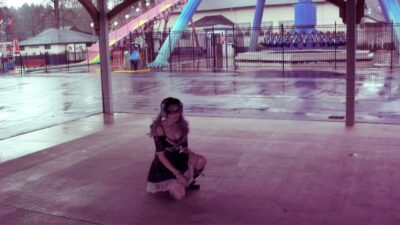

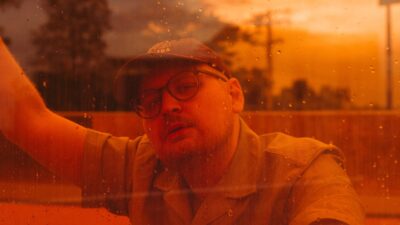


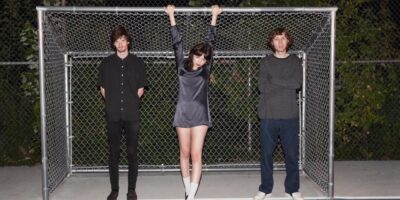

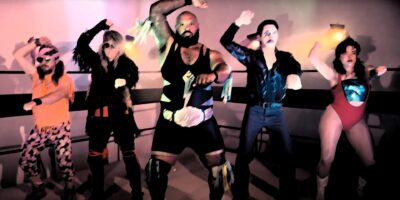
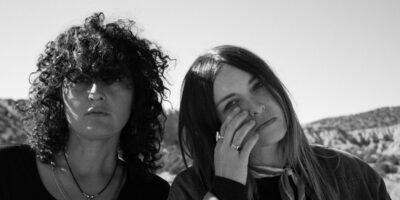





Comments